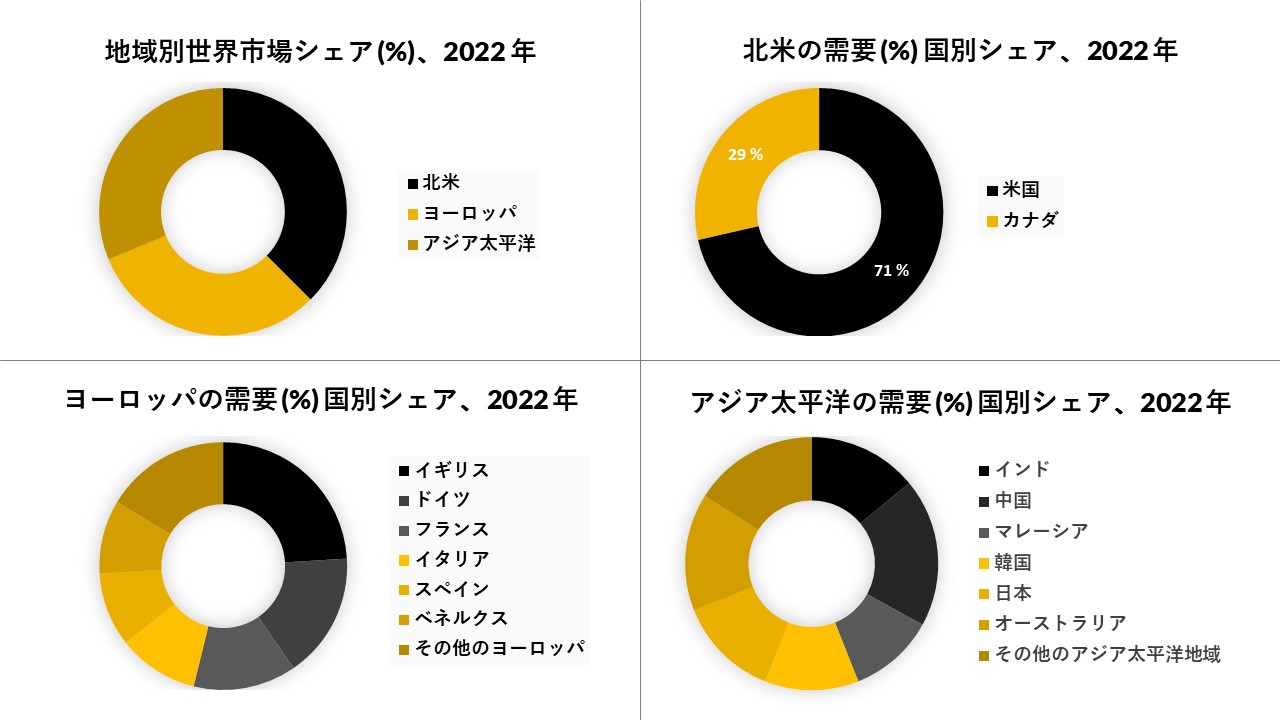神経調節市場は、予測期間中に11%のCAGRを記録すると予想されています

神経調節市場は、予測期間中に11%のCAGRを記録すると予想されています。Institute of Health Metric and Evaluationによると、神経疾患の有病率は欧州連合諸国で約307859199人です。彼らは、死亡率、障害、施設入所、入院などの健康に悪影響を及ぼすリスクが高いことと関連しています。認知症やパーキンソン病などの変性疾患、脳卒中や頭痛は、高齢の患者で頻繁に神経疾患に遭遇します。神経調節は、膀胱制御、頭痛、振戦、慢性疼痛、脳卒中、最小意識状態、脊髄損傷などの神経疾患のほとんどの治療についてFDAの承認を受けている頭蓋内、電気神経調節療法であり、高齢者集団で最も一般的に見られる。実証済みの有効性とこの技術の受け入れの改善は、予測期間中に市場の需要の急増につながると予想されます.
主な市場動向
脊髄刺激(SCS)は、内部神経調節タイプ
で最大の市場シェアを保持
脊髄に連続的な低電圧電流を流すことによって慢性疼痛を麻痺/軽減する過程は、脊髄刺激(SCS)と呼ばれる。SCSデバイスはFDA承認を受けており、世界中で最も広く受け入れられている神経刺激技術です
2019年、アボットは慢性疼痛患者のための「低用量充電フリー脊髄刺激システム」について米国FDA(食品医薬品局)の承認を受けました。これらのデバイスは、基本的な3つのタイプ、すなわち、充電式、従来の、および無線周波システムです。SCSは、神経損傷、くも膜炎、手術失敗症候群、神経障害、複合性局所疼痛症候群、神経炎などの神経学的問題に使用されます。関連する利点と有効性に加えて、SCSには、過剰刺激、断続的な刺激、鉛の配置、デバイスの誤動作など、いくつかの落とし穴もあります。しかし、SCSの利点は落とし穴を上回り、予測期間中のセグメントの成長を押し上げます
北米は最大の市場シェアを獲得し、その優位性を維持すると予想されています
- 北米は神経調節市場全体を支配し、米国が市場への主要な貢献者として会計処理しました
- 主要な市場プレーヤーと巨大な製薬およびバイオ医薬品産業の存在は、先進技術の採用のための国内への投資の増加と相まって、予測期間中に市場の地域的成長を促進すると予想されます
- 最近、Axonicsは、外部神経刺激器と埋め込み型神経刺激装置のプログラミングに使用される新しいプログラマー「r-SNMシステム」を発表しました。さらに、神経学的障害および他の関連障害の有病率に関する懸念の高まりは、神経調節技術の採用の必要性を刺激している
●さらに、パーキンソン病財団によると、米国では毎年約6万人がパーキンソン病と診断されています。したがって、前述の要因が市場の成長を促進すると予想されます
競争環境
市場の主要市場プレーヤーには、Medtronic PLC、Boston Scientific Corporation、Abbott Laboratories、Synapse Biomedical Inc.、Nevro Corporationなどがあります。さまざまな公的および民間組織に対するイノベーションの増加と投資の増加は、世界中の業界の競争を激化させると予想されています
このレポートを購入する理由:
- エクセル形式の市場予測(ME)シート
- 3ヶ月のアナリストサポート

北米(米国およびカナダ)、ラテンアメリカ(ブラジル、メキシコ、アルゼンチン、その他のラテンアメリカ)、ヨーロッパ(英国、ドイツ、フランス、イタリア、スペイン、ハンガリー、ベルギー、オランダおよびルクセンブルグ、NORDIC(フィンランド、スウェーデン、ノルウェー) 、デンマーク)、アイルランド、スイス、オーストリア、ポーランド、トルコ、ロシア、その他のヨーロッパ)、ポーランド、トルコ、ロシア、その他のヨーロッパ)、アジア太平洋(中国、インド、日本、韓国、シンガポール、インドネシア、マレーシア) 、オーストラリア、ニュージーランド、その他のアジア太平洋地域)、中東およびアフリカ(イスラエル、GCC(サウジアラビア、UAE、バーレーン、クウェート、カタール、オマーン)、北アフリカ、南アフリカ、その他の中東およびアフリカ)
